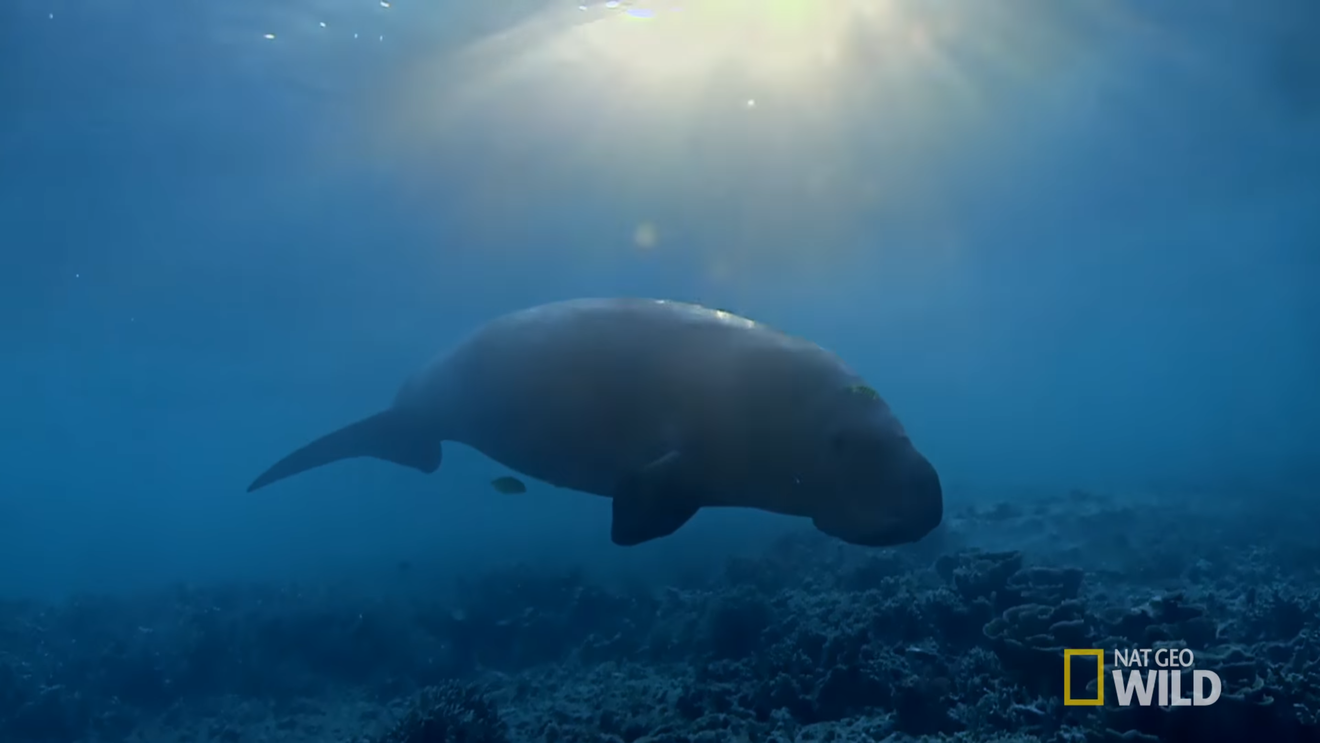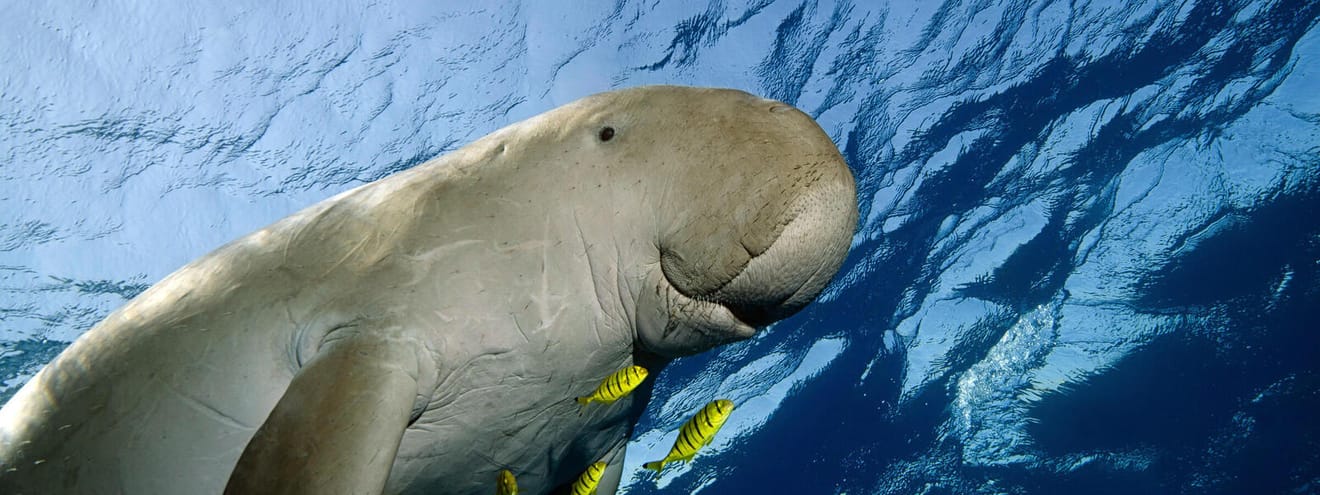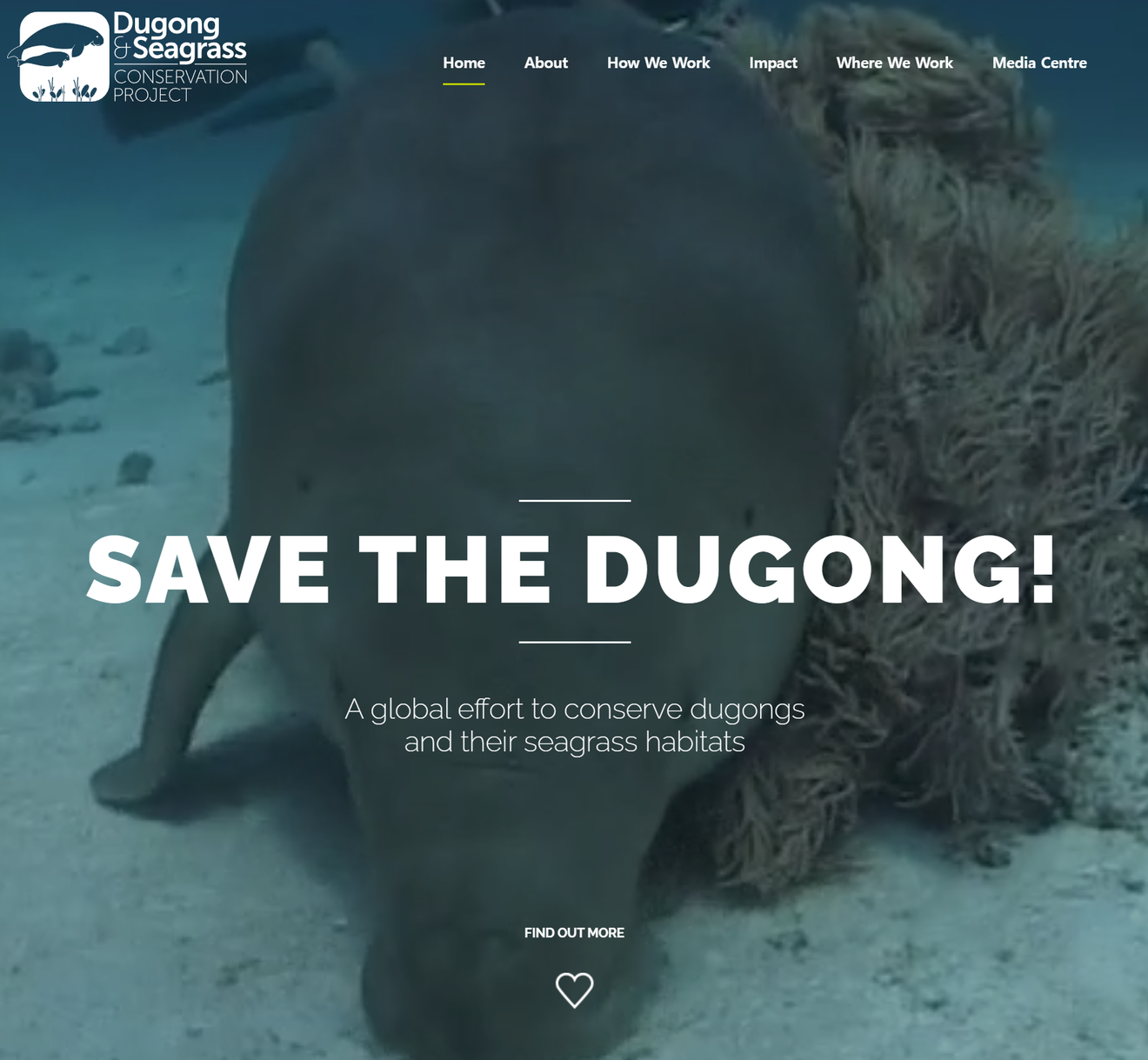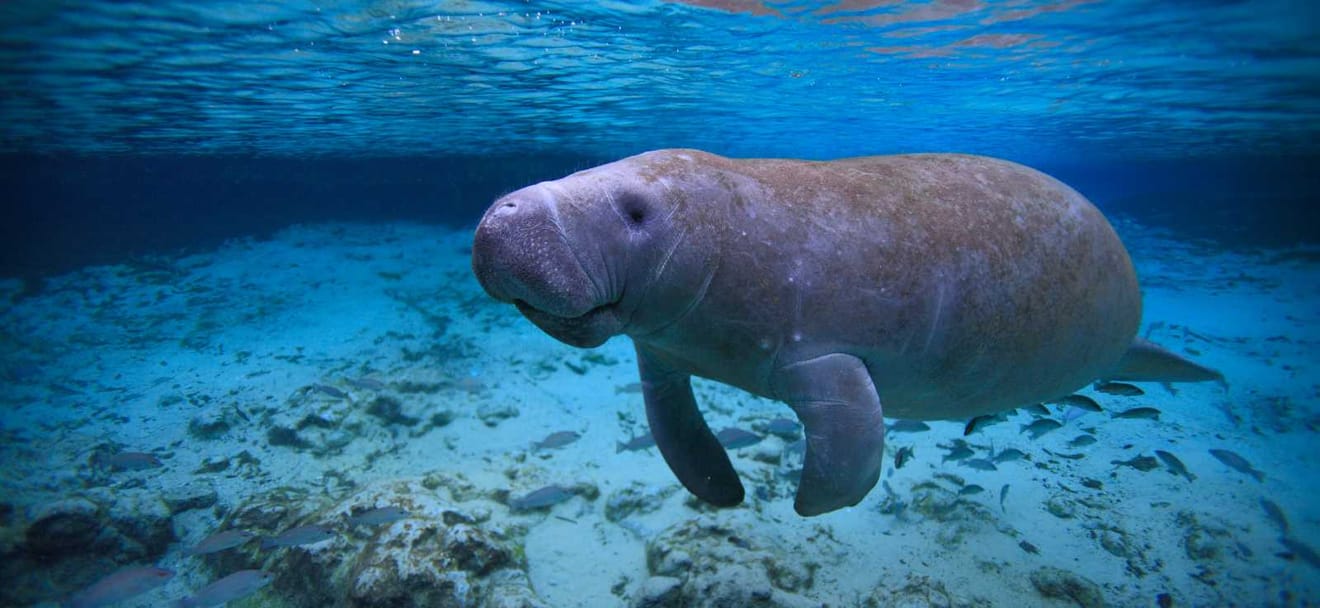Subject
- #Endangered Species
- #Dugong
- #Sea Mermaid
- #Marine Ecosystem
- #Endangered Marine Life
Created: 2024-02-02
Created: 2024-02-02 16:29

Nat Geo WILD YouTube channel ‘The Dugong: the Ocean's Vacuum Cleaner | Wild Egypt’ video capture
This animal, famous as the 'mermaid of the sea,' has a tail similar to that of a mermaid – it's the dugong. Unlike the graceful mermaid's tail, the dugong's face has small eyes and a large nose, giving it a friendly appearance. While the small eyes make the dugong look kind, unfortunately, its eyesight is said to be quite poor. However, to compensate for its poor eyesight, it has excellent hearing.
Although it looks like a seal, the dugong is a mammal belonging to the same order as whales and needs to surface to breathe about every 10 minutes. There's also a story that people saw dugongs surfacing and nicknamed them 'mermaids of the sea.'

WWF
The dugong is a species designated as endangered by the International Union for Conservation of Nature (IUCN). Classified as Vulnerable (VU), the dugong faces a high risk of becoming critically endangered in the near future. The exact number of dugongs is unknown, but their population has been steadily declining.
Found in a wide range of areas including Australia, Cambodia, Egypt, the Philippines, and Mozambique, dugongs primarily inhabit coastal regions of Southeast Asia and the Middle East. They can grow to about 3 meters in length and weigh over 360 kg, but instead of other fish, they feed on seagrass.
However, these days, seagrass is disappearing due to climate change and ocean pollution. Seagrass plays a crucial role in the marine ecosystem. Similar to trees in forests, it has the ability to absorb carbon dioxide, earning it the title of a climate change solution. Sadly, seagrass has also become a victim of the changing marine environment.

Dugong & Seagrass Conservation Project webpage capture
With the decline in seagrass, the dugong's food source is diminishing, further increasing its risk of extinction. The Dugong & Seagrass Conservation Project is working to protect dugongs and seagrass through habitat management activities and research on both species. They also raise awareness about the dugong's endangered status and educate people about the plight of seagrass due to climate change. The Dugong & Seagrass Conservation Project focuses its efforts on areas where dugongs reside, including Malaysia, Mozambique, and Indonesia.

IUCN
Dugongs are slow swimmers, making them vulnerable to collisions with ships. Collisions with passing vessels as they surface for air are another factor contributing to their endangered status. Poaching also poses a threat to dugongs.

The Marine Mammal Center
In China, dugongs are believed to be extinct. Dugongs were occasionally sighted by Chinese fishermen, but since 2008, there have been no confirmed sightings. Experts suggest that dugongs are already extinct in China.
In Hans Christian Andersen's The Little Mermaid, the princess ultimately dissolves into sea foam. However, the Disney version of The Little Mermaid has a happy ending. The fate of the sea mermaid, the dugong, is in our hands. We need a lot of attention and effort to ensure that the dugong has a happy ending.
Comments0